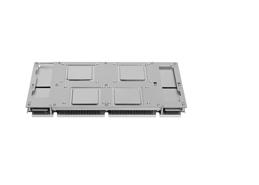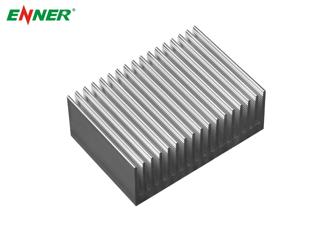The global automotive industry is undergoing a massive transformation. As countries around the world push toward carbon neutrality and green mobility, electric vehicles (EVs) have rapidly moved from niche innovation to mainstream transportation. By 2030, EVs are expected to make up more than half of new vehicle sales in key markets such as China, the EU, and the United States. However, the rise of EVs is not only revolutionizing how cars are powered—it's also dramatically changing how they are cooled.
Unlike traditional internal combustion engine (ICE) vehicles, which rely on air or liquid cooling systems to manage the heat from a centralized power source, EVs introduce multiple new thermal challenges. From lithium-ion battery packs to inverters, onboard chargers, and electric motors, the number of heat-generating components in EVs has significantly increased. As a result, efficient thermal management has become one of the most critical factors in ensuring vehicle safety, performance, and longevity.
This shift has profound implications for the heat sink industry. Heat sinks—passive devices used to dissipate heat from electronic components—now play a more essential and complex role in EV design. The growing demand for compact, high-efficiency, and vehicle-integrated thermal solutions is driving both technological and structural evolution in the industry.

One of the most notable shifts brought by EVs is the transformation of thermal profiles. In ICE vehicles, the engine block produces most of the heat, and thermal management systems are built around this centralized source. In contrast, EVs generate heat across multiple subsystems, all of which must be managed simultaneously to maintain operational stability.
| Component | Primary Heat Source | Thermal Risk if Unmanaged |
|---|---|---|
| Battery Pack | Chemical reactions during charge/discharge | Thermal runaway, fire hazards |
| Inverter / Converter | Power switching and voltage conversion | Reduced efficiency, component failure |
| Electric Motor | Continuous operation at high speeds | Overheating, magnetic degradation |
| Onboard Charger | AC-DC conversion and control circuitry | Electronics failure, reduced lifespan |
This distributed heat profile introduces complexity into the cooling system design. Unlike the relatively straightforward radiator-and-coolant loop of ICE vehicles, EVs require intelligent systems that can independently and simultaneously manage different heat sources operating under varying thermal loads. This often involves combinations of passive cooling (heat sinks), active liquid cooling, and phase change materials, all working in tandem.
Moreover, the introduction of fast charging—now capable of 350kW or more—means that thermal spikes can occur in a matter of seconds. A well-designed heat sink system must be able to absorb and dissipate heat rapidly while occupying minimal space within an increasingly compact vehicle architecture. These pressures necessitate a rethinking of how heat sinks are engineered, not only in terms of performance but also in terms of integration, durability, and materials.
In response to these demands, the heat sink industry is undergoing a quiet but critical evolution. Traditional finned aluminum blocks are no longer sufficient to handle the complex cooling needs of EVs. Instead, today's heat sinks must be lighter, more thermally conductive, more compact, and tailored to the form factors of electronic modules.
Key areas of innovation include:
In addition to hardware improvements, the role of digital simulation and thermal modeling has expanded. Engineers now use computational fluid dynamics (CFD) and finite element analysis (FEA) to predict thermal behavior and optimize the placement of heat sinks within EV modules before a single prototype is built.
This level of engineering precision means that heat sinks are no longer commoditized metal blocks—they are now critical components of an EV's electronic architecture. As such, they must meet increasingly strict technical and regulatory requirements, which brings us to the next layer of transformation in the industry.

As electric vehicles become more powerful and widespread, governments and regulatory agencies are implementing stricter thermal safety and performance standards. These rules directly influence how heat sinks are designed and qualified, especially when used in high-risk areas such as battery packs and high-voltage power electronics.
The table below outlines how some key markets differ in their thermal management expectations:
| Region | Regulation Focus | Examples of Impact on Heat Sink Design |
|---|---|---|
| China | Battery thermal runaway prevention (GB/T 18384, GB 38031) | Mandatory insulation and enhanced heat dispersion |
| European Union | UNECE R100 / R10 standards for EMC and battery safety | EMI shielding integrated with thermal solutions |
| United States | UL 2580, SAE J2929 for EV battery safety | Fireproof materials, integrated thermal sensors |
| Japan | METI guidelines for vehicle energy systems | High heat resistance with minimal size increases |
In addition to safety concerns, energy efficiency and sustainability are also driving regulatory developments. Heat sinks, as part of thermal management systems, must not only perform under extreme conditions but also contribute to the vehicle's overall energy optimization. This can affect material selection, lifecycle design, and even recyclability.
Manufacturers of thermal components must now demonstrate compliance through thermal cycle testing, vibration resistance, corrosion durability, and fire safety verification. For many suppliers, this means not just adapting to technical requirements, but also aligning with new business models that demand faster prototyping, regional customization, and tighter integration with OEM design teams.
These forces are reshaping the competitive landscape, as companies that can innovate quickly while remaining compliant will dominate the EV heat sink supply chain.
The rise of electric vehicles is doing more than change how cars are powered—it's transforming the entire thermal ecosystem. As new heat sources emerge and legacy systems fall short, the heat sink industry must respond with better materials, smarter designs, and global compliance.
What used to be a relatively standard product has now become an area of critical performance engineering, where even a minor failure can have serious implications for vehicle safety or battery longevity. Manufacturers must now think in terms of full-system compatibility, rapid thermal response, and design-for-manufacturing strategies to remain competitive.
At Enner, we understand these challenges and embrace them as opportunities. With decades of experience in thermal management and precision engineering, we provide customized, high-efficiency heat sink solutions tailored for the electric vehicle sector. Our R&D capabilities, material expertise, and manufacturing flexibility make us a reliable partner in this new era of mobility—where thermal performance is no longer optional, but essential.
By continuing to use the site you agree to our privacy policy Terms and Conditions.